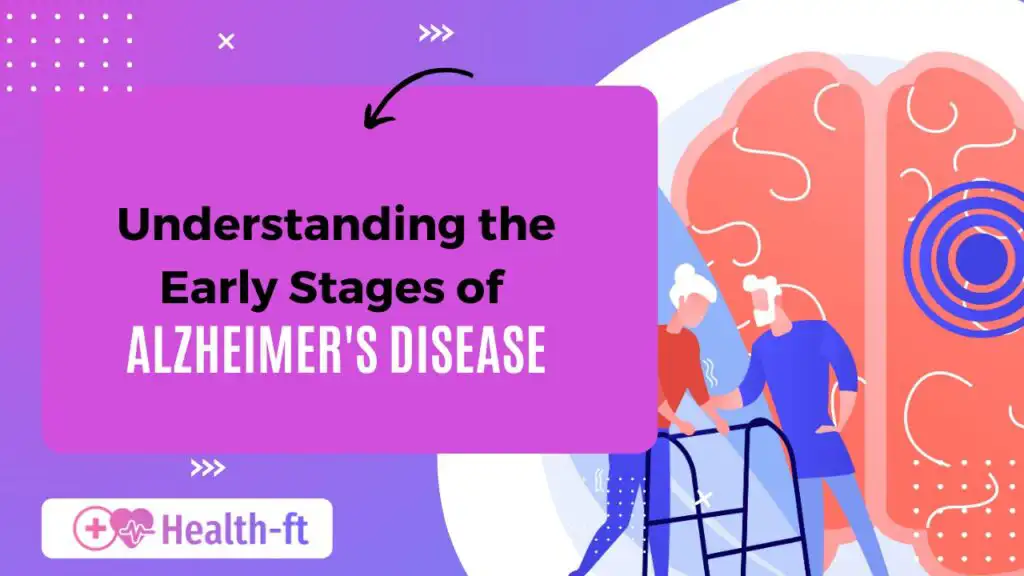Alzheimer’s disease is a progressive neurological disorder that affects millions of people worldwide. It impacts memory, reasoning, and overall functionality, often causing distress for both individuals and their families. Since Alzheimer’s progresses over time, recognizing the early signs is crucial to slowing its development and improving quality of life. This article explores the early stages of Alzheimer’s, its symptoms, progression, and how families and affected individuals can prepare.
What Is Alzheimer’s Disease?
Alzheimer’s disease is the most common form of dementia, a group of disorders that impair cognitive abilities and independence. It disrupts brain function, affecting memory, logical thinking, and physical coordination. While normal aging may lead to occasional forgetfulness or slower information processing, Alzheimer’s is a degenerative condition that worsens over time. Early recognition of symptoms can help individuals and families take proactive steps to manage the disease effectively.
What Are the Early Stages of Alzheimer’s Disease?
In its early stages, Alzheimer’s may be mistaken for normal aging, as initial symptoms are mild. These early signs may manifest as minor cognitive impairments before progressing to noticeable memory loss and confusion. This stage can last for years, but lifestyle changes, such as reducing stress by getting good sleep, using memory aids, and taking medications can help slow disease progression and maintain a good quality of life.
Key Signs of Alzheimer’s Disease
Memory Loss That Interferes with Daily Life
While occasional forgetfulness is common, individuals with early Alzheimer’s frequently forget recently learned information. They may misplace important items, forget appointments, or struggle to recall recent conversations, often leading to repeated questions or tasks.
Difficulties in Planning or Problem-Solving
People may find it hard to follow step-by-step instructions, such as cooking familiar recipes, managing finances, or remembering scheduled payments. This decline in executive function affects both home and work responsibilities.
Struggles with Familiar Tasks
Routine activities like driving known routes, handling money, or preparing meals may become challenging. Even simple mistakes, such as missing a step in a recipe or miscalculating basic math, can indicate early Alzheimer’s.
Confusion with Time or Place
Disorientation is a common early symptom. Individuals may lose track of dates, forget where they are, or struggle to recognize familiar locations. As the disease progresses, these episodes of confusion become more frequent.
Changes in Vision and Spatial Awareness
Some individuals experience depth perception issues, contrast difficulties, or spatial misjudgments, making activities like reading, driving, or walking more hazardous.
Language and Communication Difficulties
People may struggle to find the right words, repeat phrases frequently, or have trouble following or joining conversations. Everyday interactions can become frustrating, leading to social withdrawal.
Misplacing Items and Inability to Retrace Steps
While everyone occasionally misplaces things, individuals with Alzheimer’s may place objects in unusual locations—such as keys in the refrigerator—and be unable to find them. This can lead to increased frustration and anxiety.
Poor Judgment and Decision-Making
Alzheimer’s can impair judgment, leading to financial difficulties, poor grooming habits, or risky social behaviors. Individuals may become more susceptible to scams, overspending, or neglecting personal hygiene.
Withdrawal from Work and Social Activities
A person in the early stages of Alzheimer’s may lose interest in hobbies, work, or social interactions. This change is sometimes mistaken for depression, but it often stems from cognitive difficulties.
Mood and Personality Changes
Alzheimer’s can cause mood swings, sleep snoring, increased anxiety, and even paranoia. Individuals may become irritable, fearful, or suspicious, leading to noticeable changes in their interactions with others.
How Does Alzheimer’s Disease Progress?
Alzheimer’s progresses in stages, from mild cognitive decline to severe dementia. Understanding these stages helps families and caregivers prepare for evolving symptoms and care needs.
Mild Cognitive Impairment (MCI)
MCI is a transitional stage between normal aging and Alzheimer’s. It involves memory and cognitive issues that are more pronounced than typical age-related forgetfulness but do not yet interfere with daily life. Lifestyle changes and early interventions may help slow the progression to Alzheimer’s, though not all MCI cases develop into the disease.
Mild Alzheimer’s Disease (Early Stage)
At this stage, symptoms become more apparent, including frequent forgetfulness and difficulty with daily activities. However, individuals can still function independently with the help of memory aids and structured routines. This phase can last several years.
Moderate Alzheimer’s Disease (Middle Stage)
Memory loss worsens, and individuals may experience confusion, personality changes, and increased reliance on caregivers. They may become disoriented in familiar places, struggle with language, or exhibit behavioral changes such as agitation or aggression. More supervision is required at this stage.
Severe Alzheimer’s Disease (Late Stage)
In the final stage, individuals experience significant cognitive and physical decline, requiring full-time assistance with daily activities like eating, dressing, and bathing. Personality changes become more pronounced, the risk of cardiovascular issues increases, and communication abilities diminish. This stage places emotional and physical strain on caregivers.
How Can Individuals and Families Cope with Early Alzheimer’s?
While there is no cure for Alzheimer’s, early intervention can improve quality of life.
Medical Treatments and Therapy
Certain medications may help slow cognitive decline and manage symptoms. Occupational therapy can assist individuals in maintaining independence for as long as possible. Certain nutrients, like magnesium, may support brain health. Consulting specialists like neurologists, geriatricians, and psychologists can ensure a well-rounded treatment approach.
Lifestyle Adjustments
Engaging in regular exercise, social activities, eating healthy and clean food and brain-stimulating exercises like puzzles or reading can slow cognitive decline. Maintaining an active lifestyle benefits both mental and physical health.
Establishing Routines and Cues
Calendars, reminders, and labels can help individuals stay organized and reduce anxiety. Simple adjustments, like keeping frequently used items in the same place, can make daily life easier.
Emotional Support and Therapy
Both individuals with Alzheimer’s and their families experience emotional challenges. Support groups and therapy (such as Cognitive Behavioral Therapy) can provide coping strategies and emotional relief. Many communities offer Alzheimer’s support networks for patients and caregivers.
Planning for Future Care
As the disease progresses, additional care will be needed. Families should prepare for future medical, financial, and caregiving decisions, whether through in-home assistance or specialized memory care facilities.
What Can Caregivers Do to Support Loved Ones with Early Alzheimer’s?
Caregivers play a crucial role in helping individuals with early Alzheimer’s navigate daily life.
- Be Patient and Understanding – Memory loss and mood swings can be frustrating, but offering reassurance and patience helps create a supportive environment.
- Encourage Independence – Allow individuals to complete tasks independently when possible, offering guidance only when needed to maintain their sense of autonomy.
- Stay Organized – Keep important documents, medical records, and emergency contacts readily accessible. Structured routines help reduce stress for both patients and caregivers.
Conclusion: The Importance of Early Detection and Intervention
Recognizing the early signs of Alzheimer’s is critical in improving patients’ and their families’ quality of life. While there is currently no cure, early intervention, lifestyle adjustments, and caregiver support can help manage symptoms and slow disease progression. As research continues, new treatments and advancements offer hope for the future.




